What’s New for March
In March, Reteno rolled out several important updates: new In-App message types, extended widget and web push capabilities, improved segmentation options, and other system enhancements. Read on to learn more.
Key Updates
In-App
New In-App Message Types
In mobile SDK versions starting from Android 2.5.0/iOS 2.5.0, the following types of In-App messages are supported:
- Pop-up: blocks app content and closes by tapping outside the message or on the close icon
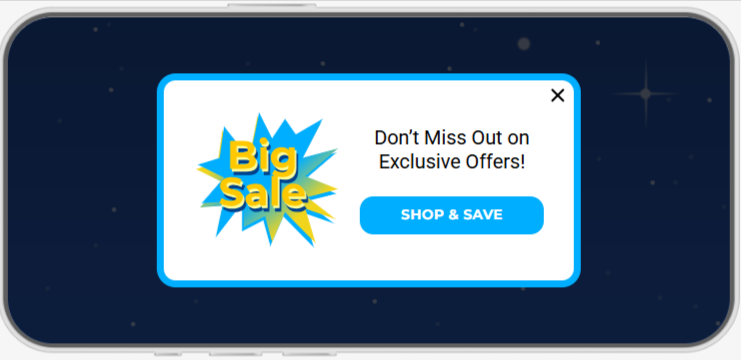
- Slide-up: located at the top or bottom of the screen, does not block content, closes with a swipe or tap on the close icon
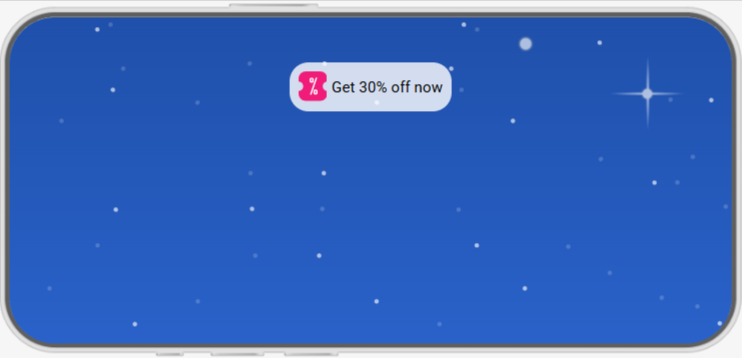
- Floating Bar: located at the bottom of the screen, does not block content, closes with a swipe or tap on the close icon
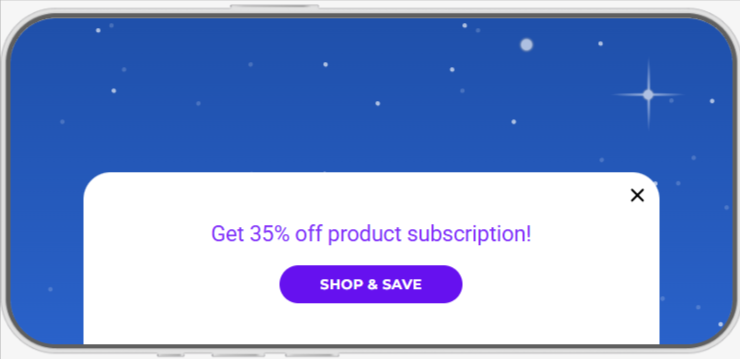
New Segmentation Conditions
Available and Empty
Segmentation by user events now includes two new conditions: Available (when the number of specific events exceeds 0) and Empty (when the number of particular events equals 0). These conditions allow you to quickly filter users — for example, identifying those who have never placed an order or completed a key action at least once.
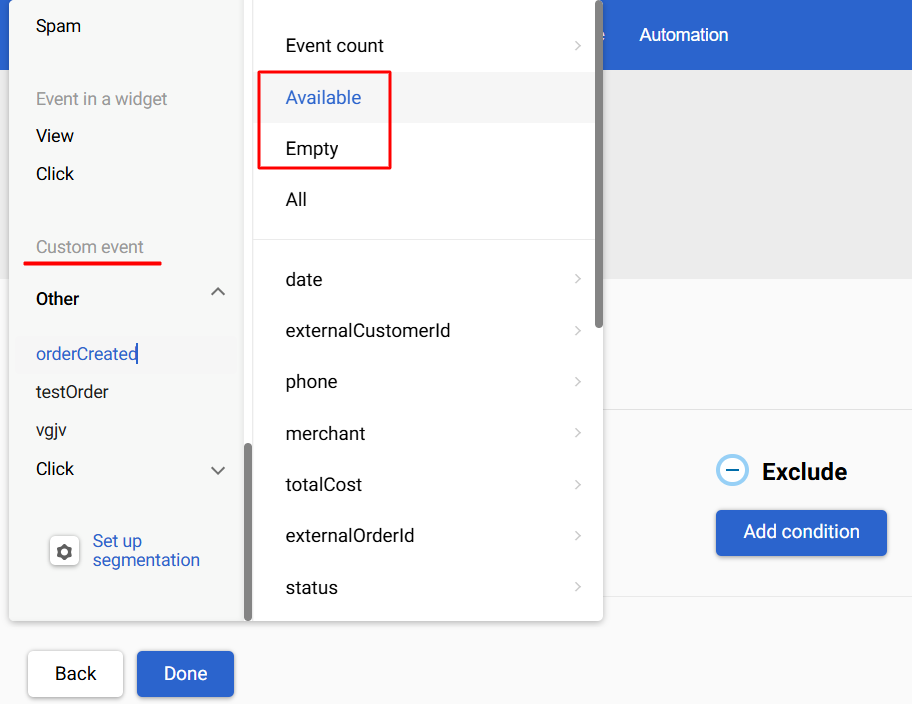
The For All Time Period
We’ve added the For all time option to segmentation:
Segmenting by this period allows you to track the entire contact history and adjust communication based on the number of key events.
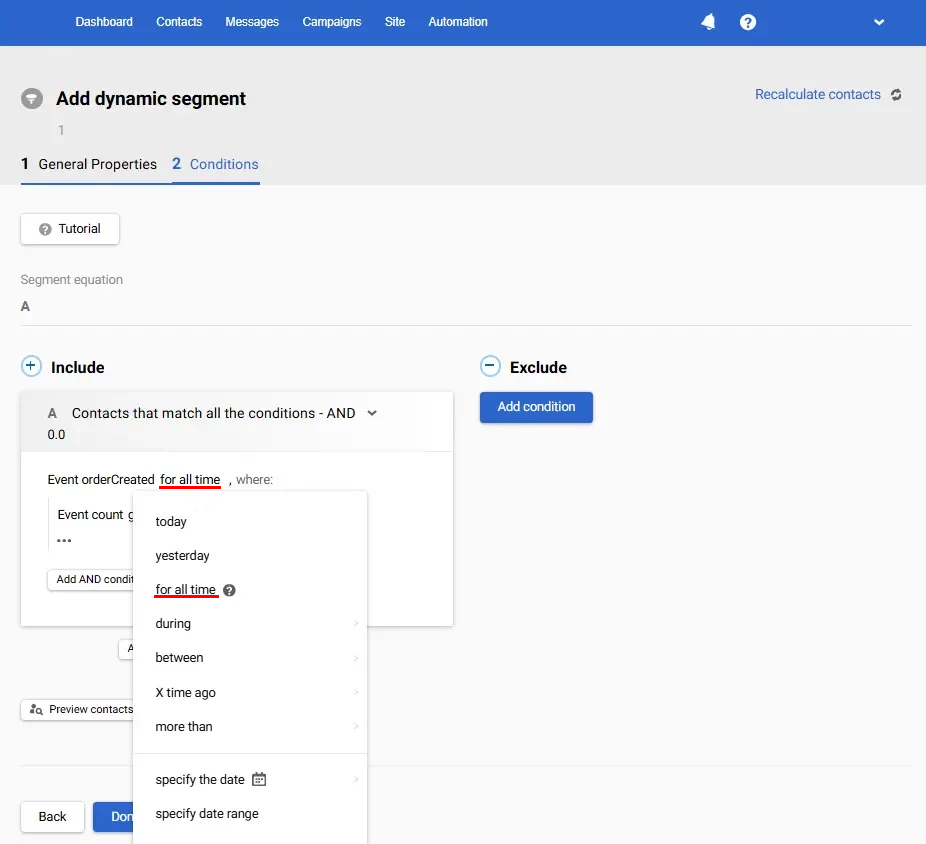
Date of the User's First/Last Event
User event segmentation now includes filters for:
- First event date
- Last event date
These filters allow you to define user segments based on their actions more precisely. For example, previously, the "new subscribers" segment could include users who unsubscribed and then resubscribed a few months later. With these new conditions, you can correctly exclude such users and include only those who are subscribing for the first time.
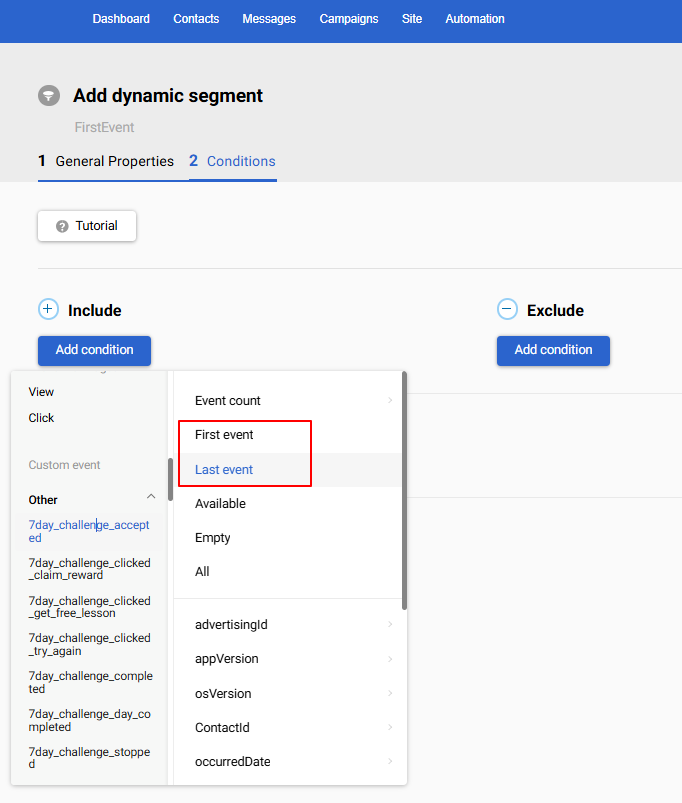
Web Push
Service Worker Settings
Service Workers are background scripts that ensure Web Push notifications are displayed correctly, even when the web page is closed. Service Worker settings have made it possible to integrate Web Push with sites on the Shopify platform and solve the problem of conflict between two different Service Workers.
Integrating Web Push with Shopify
Previously, Shopify did not allow users to place files in the site's root directory, where the Service Worker was to be located. Now, files can be placed in any directory, offering more flexibility. Additionally, you can add the Reteno Web Push script to any page on your site.
To accomplish this, navigate to the organization settings and open the Web Push tab. There, you'll find a newly added section called Service Worker setup, where you need to complete the following fields:
- Path to the`Service Worker file
- Service Worker file name
- Service Worker scope
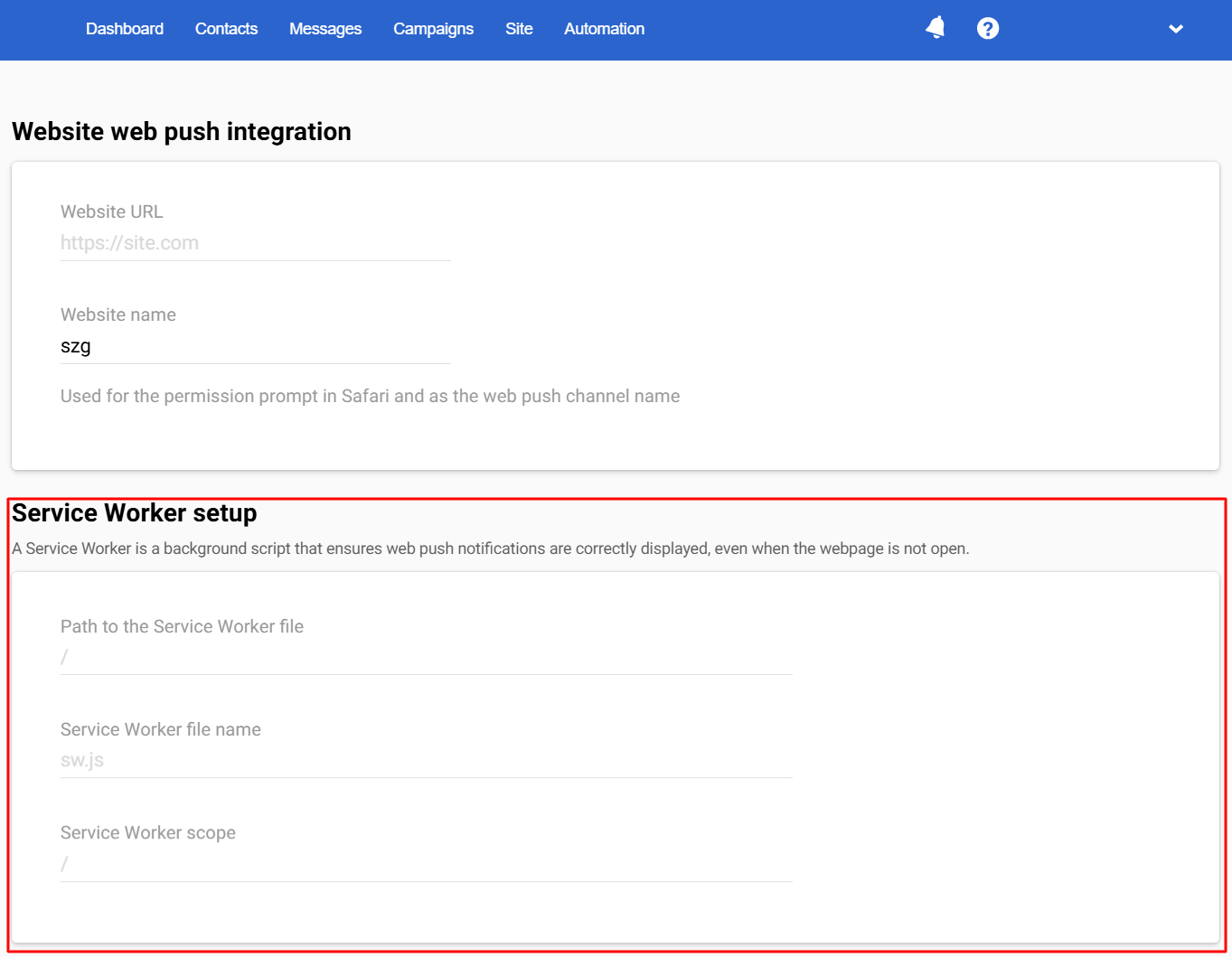
Resolving a Conflict Between Two Service Workers
The conflict between the two Service Workers occurred on Apple devices with PWA (Progressive Web App). Now, you can install your PWA Service Worker in the root directory and the Reteno Service Worker in another arbitrary location and set them to different scopes. This will allow users to subscribe to web push messages and receive them on Apple devices.
Determining Contact Location by IP from SDK Events
Contact cards can now be enriched with location data based on the IP address from which SDK events are sent if such events do not contain location parameters. This is an additional method to determine a contact’s location, for example, to apply specific marketing strategies for different countries.
To activate this feature, submit a request to [email protected].
Other Updates
Bulk Adding and Removing Tags
Working with tags has become even more convenient: you can select unlimited media channels, workflows, or segments and assign or remove specific tags from them.
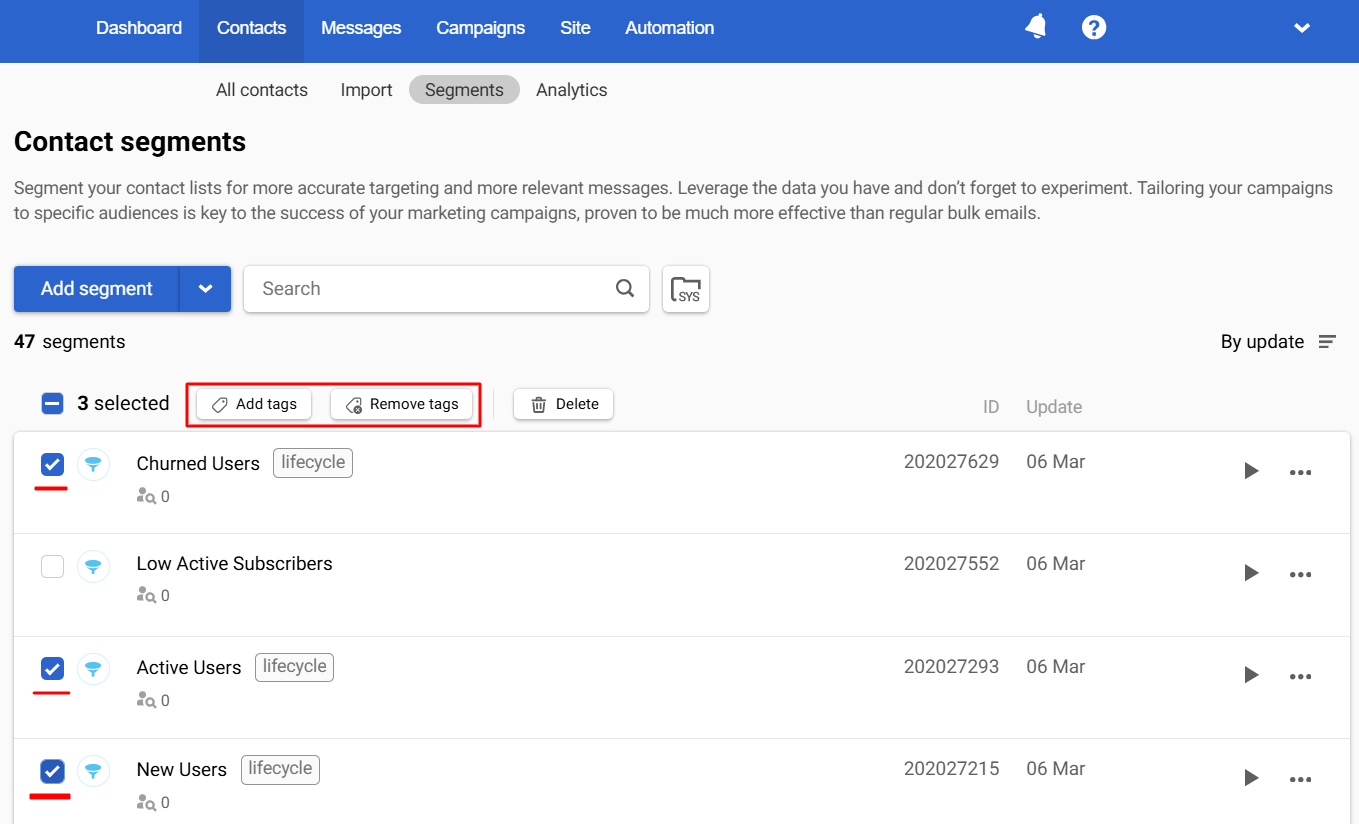
This greatly simplifies message testing in the One of Many block, where message selection is based on tags.
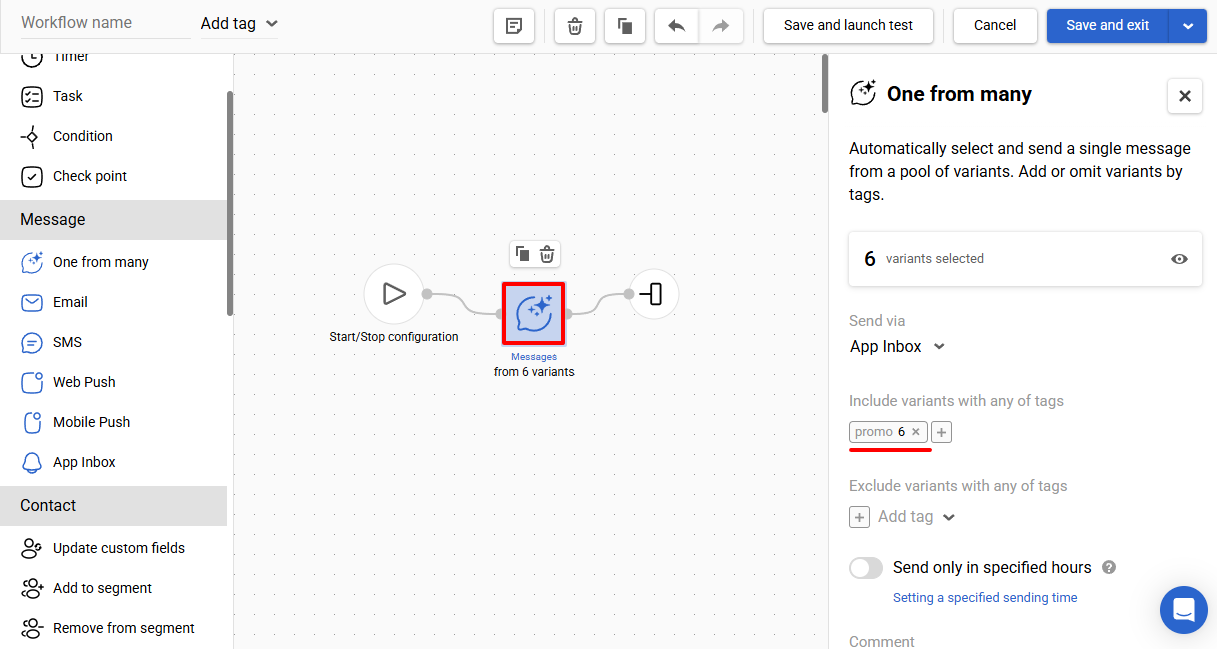
Learn more about adding tags >
Widgets
Rating Component
A new Rating component has appeared, designed to help collect user ratings on your website or in personal accounts. Four types of Rating are available:
- 5 Stars
- 1-5 Rating
- 3 Emojis
- Like/Dislike

In the widget settings, you can select a specific contact segment for which the widget will be relevant. This allows you to collect quality feedback from those who have actually interacted with your services.
Social Media Icon Size
We’ve added +/- controllers for the Social component, which allow you to change the size of the icons on the widget’s mobile and desktop versions.
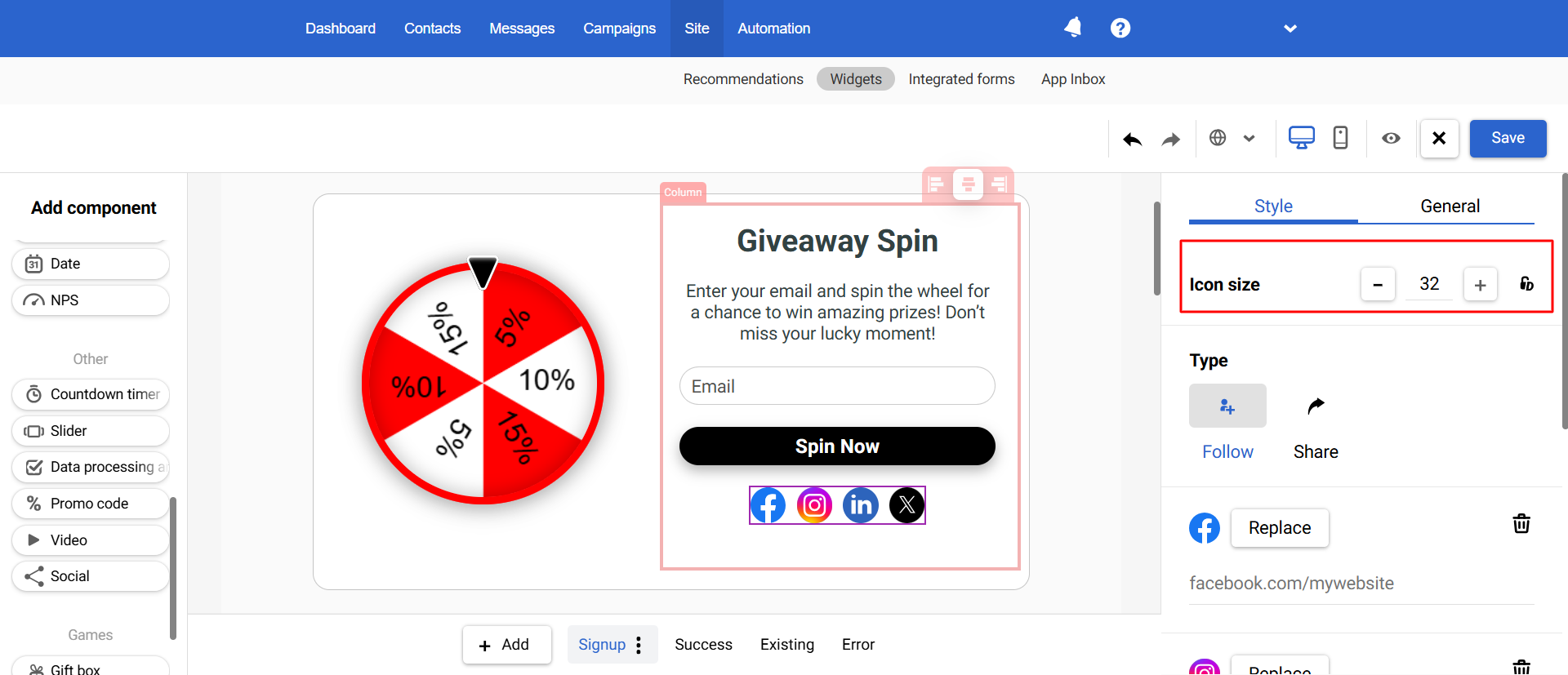
Improving Event Analytics
Now, you can view the analytics for the selected period in detail by highlighting the desired area of the graph with the cursor. Click the Reset zoom button to return to the original data display for the entire period.
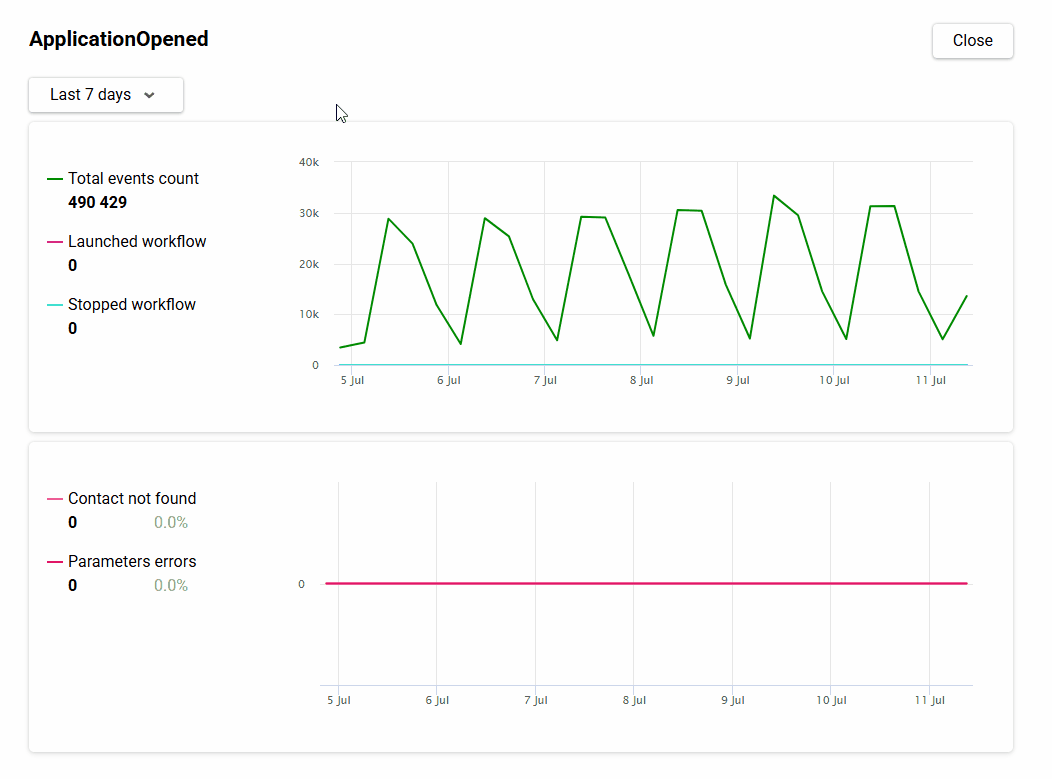
API for Managing SMS
New API methods make it easier to work with SMS: without logging into your account, you can add new messages, update their content, etc.
| Methods for SMS | Description |
|---|---|
| Add base SMS message | Creates a new message |
| Update base SMS message | Updates message |
| Delete SMS message | Deletes a message |
| Update translated SMS message | Updates a language version of a message |
| Delete translated SMS message | Deletes a language version of a message |
Updated 6 months ago
